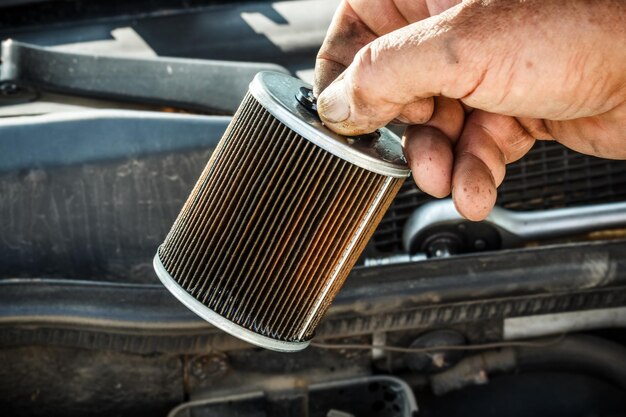Your car’s fuel filter plays a crucial role in ensuring that clean fuel reaches the engine, where it is burned efficiently to power your vehicle. Over time, the fuel filter can become clogged with dirt, debris, and other contaminants, affecting engine performance and fuel efficiency. Recognizing the early signs that your car’s fuel filter needs changing can help prevent engine damage and costly repairs down the road. In this article, we’ll explore some common indicators that it’s time to replace your fuel filter and what steps you can take to address the issue.
1. Engine Misfires or Hesitation
One of the early signs of a clogged fuel filter is engine misfires or hesitation during acceleration. When the fuel filter becomes blocked, it restricts the flow of fuel to the engine, causing irregular combustion and reduced power output. You may notice jerking or hesitation when pressing the accelerator, particularly at higher speeds or when climbing hills. Ignoring these symptoms can lead to further engine performance issues and potentially damage other components.
2. Difficulty Starting the Engine
A clogged fuel filter can also make it difficult to start the engine, especially when the car has been sitting for an extended period. If you notice that your car takes longer to start or requires multiple attempts before the engine turns over, it could indicate a fuel delivery problem caused by a blocked fuel filter. Addressing this issue promptly can prevent further starting problems and ensure reliable engine performance.
3. Decreased Fuel Efficiency
A decrease in fuel efficiency is another common sign that your car’s fuel filter needs changing. When the fuel filter becomes clogged, it restricts the flow of fuel to the engine, causing it to work harder to maintain performance. This increased workload leads to higher fuel consumption and reduced miles per gallon (MPG). If you notice a significant drop in fuel efficiency or find yourself refueling more frequently than usual, it’s a good idea to inspect the fuel filter for potential blockages.
4. Engine Stalling
A severely clogged fuel filter can cause the engine to stall unexpectedly, especially when driving at higher speeds or under heavy loads. If your car suddenly loses power and shuts off while driving, it could indicate a fuel delivery problem caused by a blocked fuel filter. Engine stalling poses a significant safety risk, especially in traffic or hazardous driving conditions. If you experience frequent engine stalls, it’s crucial to address the issue promptly to prevent accidents and ensure driver safety.
5. Rough Idling
Another early sign of a clogged fuel filter is rough idling, where the engine runs unevenly or inconsistently when at a standstill. You may notice the engine vibrating or shaking more than usual, and it may struggle to maintain a steady idle speed. Rough idling can be caused by insufficient fuel delivery to the engine, resulting from a blocked fuel filter. Addressing this issue can improve engine smoothness and prevent further damage to engine components.
What to Do If You Suspect a Clogged Fuel Filter
If you notice any of the early signs indicating a clogged fuel filter, it’s essential to take action promptly to prevent engine damage and ensure reliable performance. Here’s what you can do:
- Inspect the Fuel Filter: Check the fuel filter for signs of clogging, such as visible debris or discoloration. If the filter appears dirty or blocked, it’s time to replace it.
- Consult a Professional: If you’re unsure about the condition of the fuel filter or how to replace it, consult a qualified mechanic or technician. They can inspect the filter and recommend appropriate replacements.
- Replace the Fuel Filter: Follow the manufacturer’s recommendations for replacing the fuel filter, and use a high-quality replacement filter that meets your car’s specifications.
- Regular Maintenance: Incorporate fuel filter replacement into your car’s regular maintenance schedule to ensure optimal engine performance and reliability.
Recognizing the early signs that your car’s fuel filter needs changing is essential for maintaining engine performance and fuel efficiency. By being vigilant for symptoms such as engine misfires, difficulty starting, decreased fuel efficiency, engine stalling, and rough idling, you can address fuel filter issues promptly and prevent further damage to engine components. Regular maintenance and inspections by qualified professionals will help keep your car’s fuel system in top condition and ensure smooth and reliable operation on the road.











